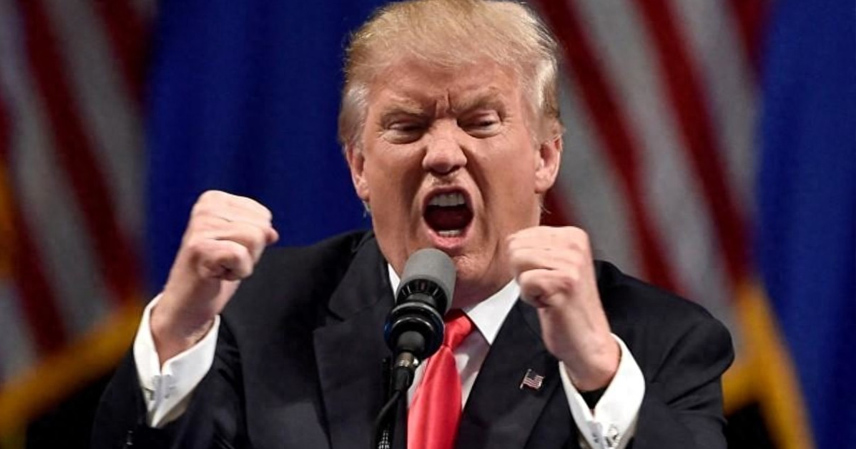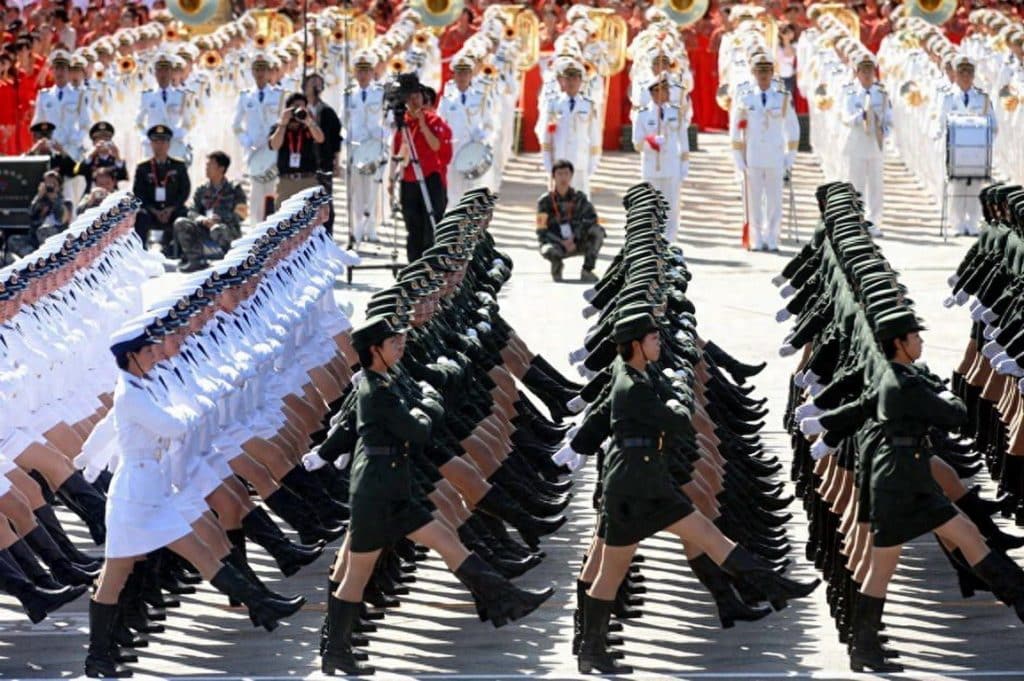China’s sudden move to strengthen export controls on rare earth materials — critical components for U.S. defense and high-tech manufacturing — sent shockwaves through Washington. Within hours, an emergency closed-door meeting at the White House reportedly turned chaotic, as former President Donald Trump lashed out at Commerce Secretary Ruth Lutenik, accusing her of acting without authorization and derailing his broader diplomatic plans toward China.
According to multiple insiders, Trump furiously called Lutenik a “fool,” claiming her unilateral sanctions against Chinese tech firms provoked Beijing at the worst possible time. The outburst was not just an internal spat — it exposed a deeper fracture in America’s China policy: a government increasingly divided, reactive, and losing strategic coordination on one of its most critical foreign relationships.

A divided White House and a fractured China strategy
The sequence of events was straightforward but telling. Just days before the APEC Summit, where Trump reportedly intended to project a softer diplomatic tone toward Beijing, the Commerce Department pushed forward new sanctions targeting China’s high-tech enterprises — without explicit presidential approval.
China’s swift countermeasure — tightening rare earth exports — hit a nerve. These materials are indispensable for U.S. weapons systems, electronics, and green technologies. The move was widely interpreted as a precision strike on America’s industrial weak spot.
When Trump learned of the sanctions, he erupted in anger during a hastily convened meeting, accusing Lutenik of “wrecking the plan.” Sources say the scene turned tense, with Lutenik walking out mid-meeting as senior officials watched in stunned silence.
But beyond the shouting, the incident revealed an institutional flaw: Washington’s China policy machinery has become a tangle of agencies acting on impulse. Competing bureaucracies, each seeking to appear “tough on China,” often undermine the broader diplomatic tempo — creating an image of incoherence abroad and confusion at home.

Analysts note this “react first, think later” culture has plagued U.S. policymaking for years. Departments scramble to respond to Beijing’s every move, even without White House coordination. The result is a chaotic feedback loop where unilateral actions force reactive diplomacy, handing the strategic initiative back to China.
America’s confidence wanes: turning to allies for strength
For decades, the U.S. held the upper hand in its dealings with China, assuming economic and technological superiority guaranteed leverage. But that confidence has eroded.
Former U.S. Ambassador to China Nicholas Burns recently remarked that Washington now faces a “peer competitor,” acknowledging that America can no longer dictate terms alone. The statement echoed a growing recognition among policymakers: the U.S. needs its allies more than ever to maintain influence in its competition with China.
Over the past decade, Washington has deployed nearly every available tool — trade tariffs, tech export bans, investment screening, and diplomatic pressure — yet China’s resilience has surprised many. Rather than buckle, Beijing accelerated domestic innovation in semiconductors, clean energy, and materials science.
Now, with China’s rare earth export curbs hitting sensitive sectors like defense and renewable energy, American industries are feeling the strain. The U.S. approach of “pressure for concessions” has backfired — China’s counterpunches have become both strategic and targeted, exploiting Washington’s supply-chain vulnerabilities.

Allies grow wary: Japan and Europe rethink alignment
Facing a narrowing window for unilateral action, the U.S. has leaned harder on its alliances, hoping to form a unified “China containment” coalition. Yet even among long-standing partners, enthusiasm is fading.
Japan: shifting from confrontation to caution
Tokyo has recently softened its stance on cross-Strait and trade issues. Policy initiatives once aimed at aligning tightly with U.S. pressure campaigns on China are now being quietly shelved. The motivation is pragmatic: economic survival.
Japan’s industries remain deeply intertwined with China’s market — from automotive parts to high-end electronics. Escalating confrontation risks painful retaliatory measures. Recent political signals confirm this recalibration: hardline figures like Sanae Takaichi, once favored by Washington for her anti-China rhetoric, have lost domestic support. Japanese voters increasingly prioritize economic stability over ideological confrontation.
Europe: talking autonomy, walking caution
Across the Atlantic, the mood is similar. While Germany and France continue to voice rhetorical alignment on “values-based diplomacy,” both are pushing for “strategic autonomy” — maintaining space to engage China economically without being bound by Washington’s confrontation narrative.
The European private sector, still reliant on Chinese markets for growth, is urging moderation. For many European capitals, China remains a partner, competitor, and systemic rival — all at once. Aligning fully with a U.S.-led containment strategy risks severe trade repercussions and domestic political fallout.

As a result, America’s “anti-China coalition” looks increasingly fragile. Each member has its own calculus, shaped by domestic economics and political cycles. Washington’s expectation of a unified front is colliding with the realpolitik of national self-interest.
The bigger picture: strategy versus impulse
The Trump–Lutenik confrontation is only the visible symptom of a deeper strategic ailment. U.S. foreign policy toward China has grown increasingly reactive and fragmented, with messaging that alternates between negotiation and confrontation.
China’s latest rare earth move was not an emotional retaliation; it was a calibrated response, timed and targeted to exploit Washington’s coordination gaps. In contrast, America’s response — public discord, rushed meetings, and competing statements — underscores the absence of a coherent long-term approach.
Experts warn that great-power competition is as much about strategic rhythm as about strength. The side that dictates tempo and coherence ultimately controls the game. For now, China appears more capable of sustaining that rhythm — blending restraint with precise countermeasures — while Washington wrestles with its own internal dissonance.
If the United States hopes to regain the initiative, it must move beyond reflexive toughness and rediscover strategic composure. In geopolitics, shouting the loudest rarely wins the round — but staying coordinated often does.
References
- Reports from U.S. and Asian media outlets (October 2025)
- Statements from the U.S. Department of Commerce and Ministry of Foreign Affairs of China
- Commentary by former U.S. Ambassador Nicholas Burns and regional policy experts



